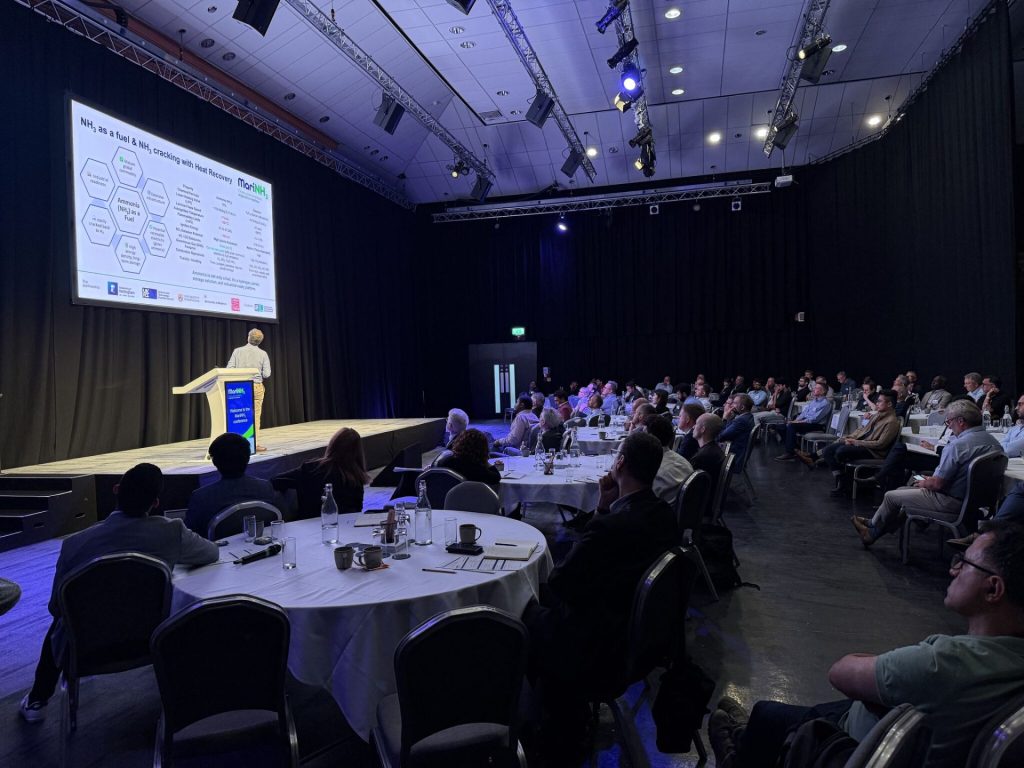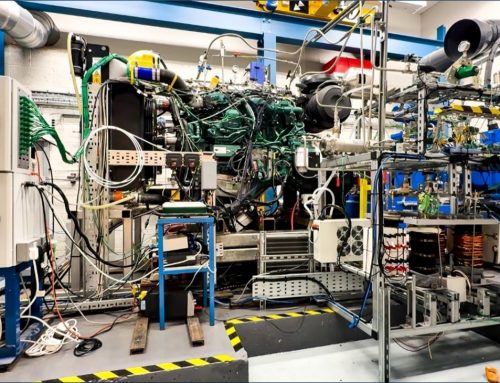Over 100 delegates convened at the 2025 MariNH₃ Conference to explore the promising future of ammonia as a net zero fuel. Keynote speakers and leading researchers shared significant advancements in ammonia-fuelled engine technology that have the potential to dramatically reduce greenhouse gas emissions and pollution across the maritime sector.

MariNH3 Conference 2025
The conference served as a platform to showcase major collaborations between industry and academia, underscoring the critical role of joint research efforts in accelerating the transition to cleaner fuels. Delegates were also introduced to several funded initiatives emerging from the MariNH₃ programme, including high-profile Clean Maritime Demonstration Competition projects such as ENTICE and REACT.
Dr Laura Norris and Dr Claire Copeland outlined strategic pathways to ammonia adoption, supported by strong indicators of market growth. Adding to this, Dr Mike Rendall of AFC highlighted ammonia’s capacity to meet future energy demands, while cautioning that energy storage remains a significant hurdle in the journey toward full fossil fuel replacement.
Innovative research was a central theme throughout the conference. Dr Anthony Giles of Cardiff University presented the development of a counterflow burner, instrumental in validating chemical kinetic mechanisms and enabling the design of more efficient combustion systems. Gagan Gopakumar Suja from the University of Nottingham, delivering his first conference presentation, reported major progress on a spark ignition engine capable of running on 100% cracked ammonia, with upcoming tests to include an after-treatment system aimed at reducing emissions.
Meanwhile, Dr Martin Herreros from the University of Birmingham shared ongoing work focused on mitigating nitrogen oxides (NOx) formation. Their research is helping to uncover the sources of NOx and develop solutions to inhibit its production.
Closing the conference, Professor Alasdair Cairns, Programme Director, praised the remarkable progress achieved by academic partners over the past three years. He emphasised the importance of continued innovation over the remaining two years of the MariNH₃ programme, including the development of a comprehensive roadmap for future ammonia-fuelled marine propulsion research and development.
The MariNH₃ Conference reaffirmed the central role of ammonia in decarbonising the maritime industry and provided a clear signal that the path to net zero shipping is not only possible – but well underway.

